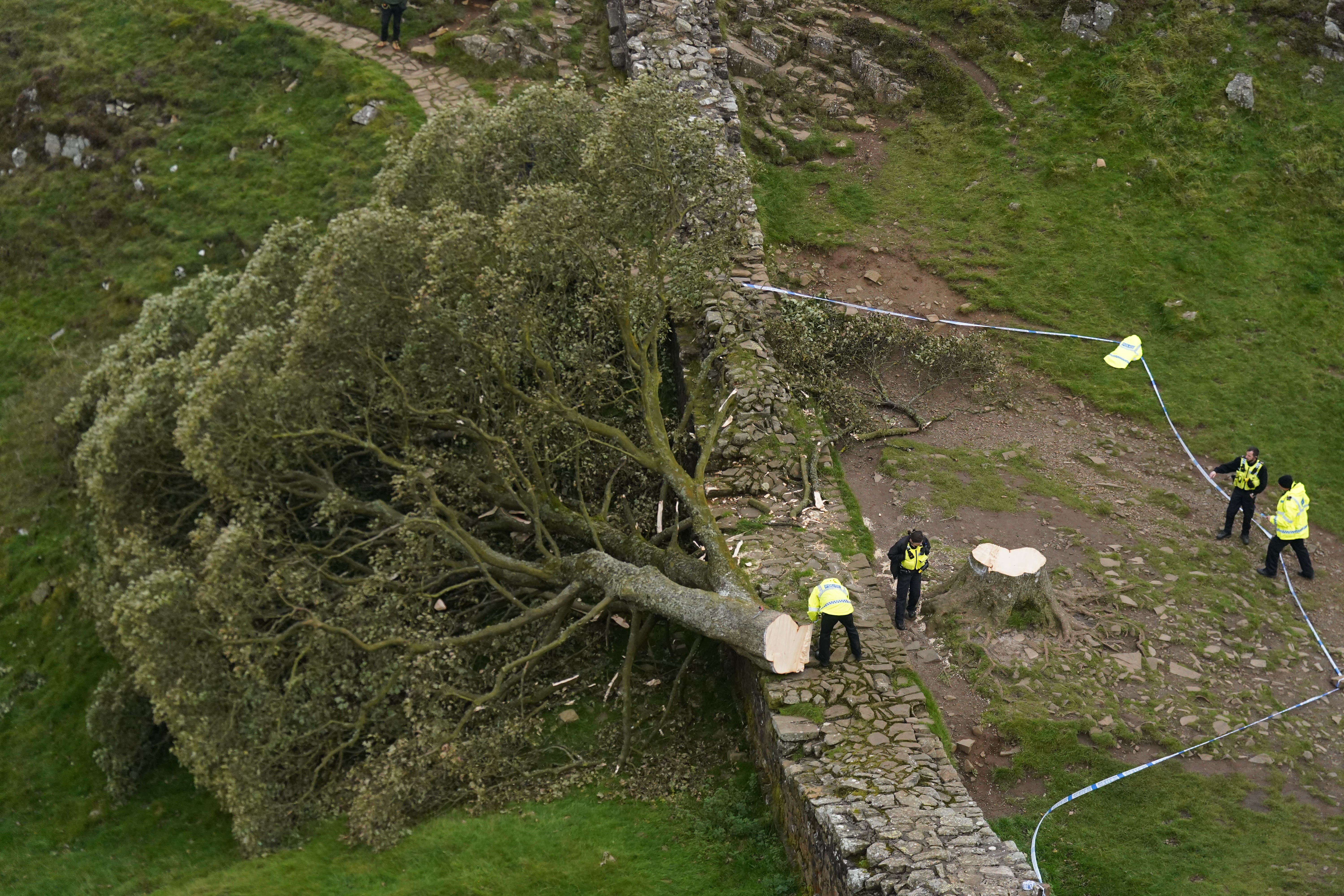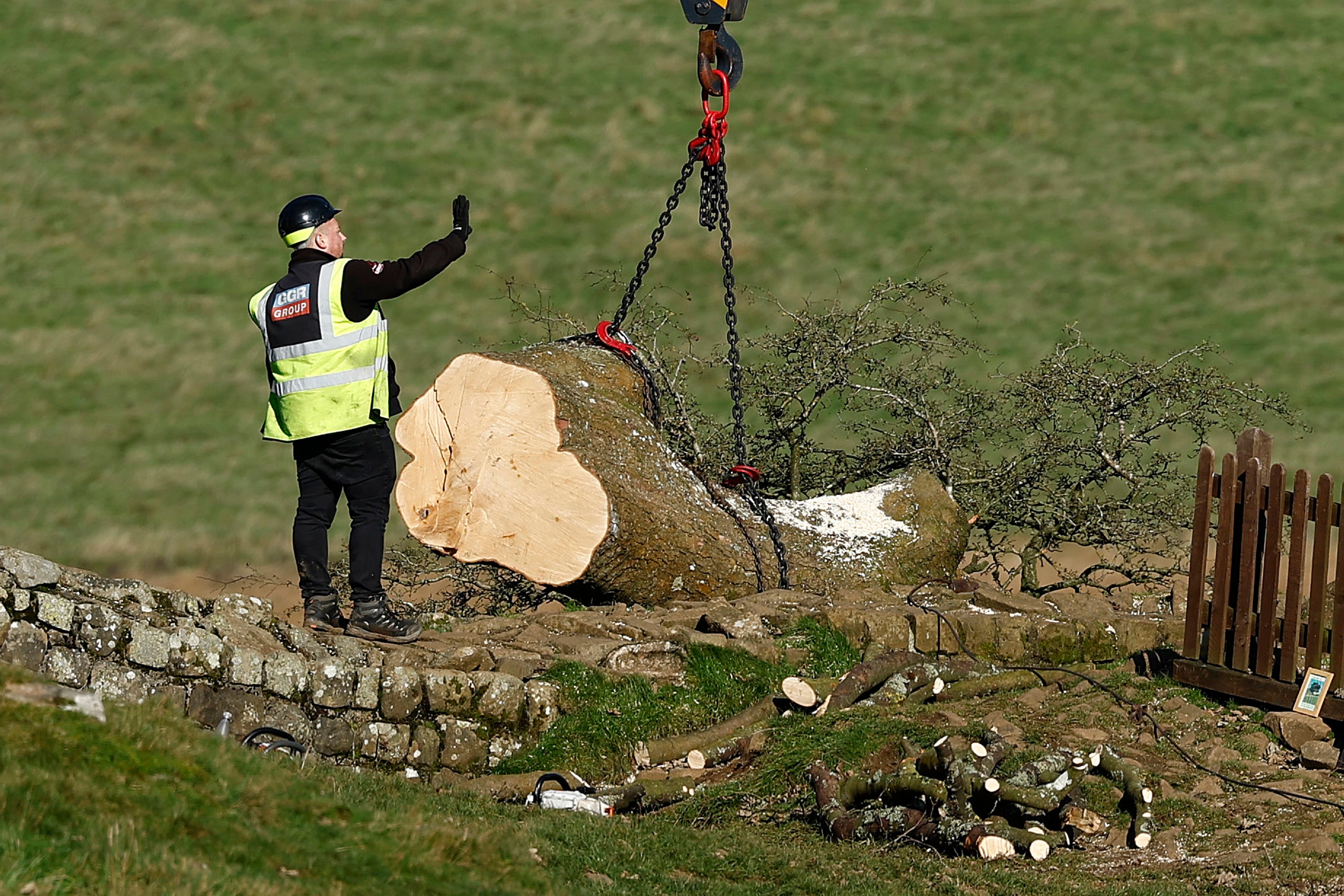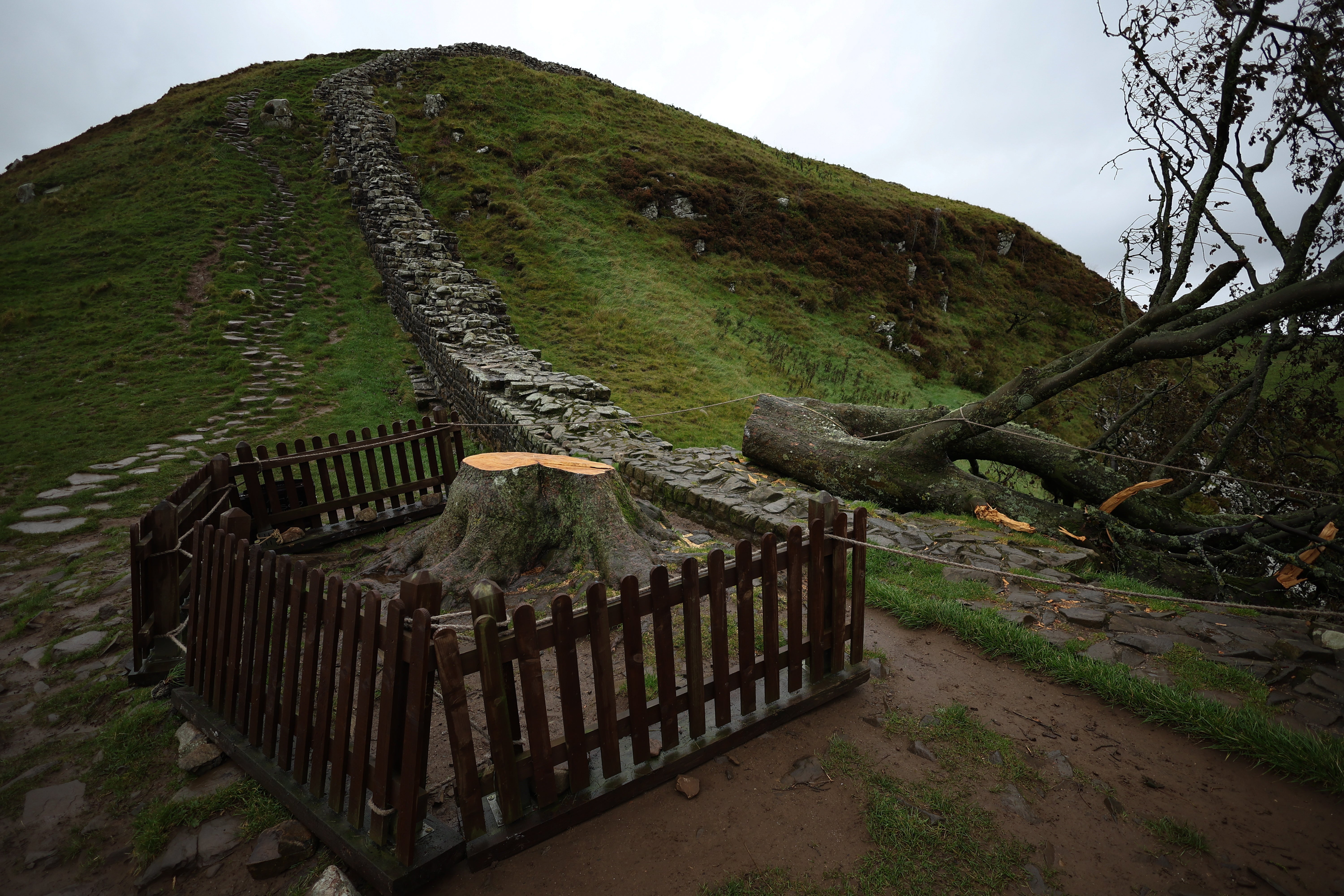Hopes for future of iconic Sycamore Gap Tree renewed
There was a national outcry when the iconic tree was felled overnight in September

Your support helps us to tell the story
From reproductive rights to climate change to Big Tech, The Independent is on the ground when the story is developing. Whether it's investigating the financials of Elon Musk's pro-Trump PAC or producing our latest documentary, 'The A Word', which shines a light on the American women fighting for reproductive rights, we know how important it is to parse out the facts from the messaging.
At such a critical moment in US history, we need reporters on the ground. Your donation allows us to keep sending journalists to speak to both sides of the story.
The Independent is trusted by Americans across the entire political spectrum. And unlike many other quality news outlets, we choose not to lock Americans out of our reporting and analysis with paywalls. We believe quality journalism should be available to everyone, paid for by those who can afford it.
Your support makes all the difference.Hopes for the future of the Sycamore Gap Tree have been renewed, after scientists confirmed cuttings and salvaged seeds are showing positive signs of new growth.
There was an outcry when the tree was chainsawed, causing it to fall on the Roman wall, which is a World Heritage Site.
Historic England said Hadrian’s Wall had suffered damage when it was felled in an act of vandalism, and the future of the famed tree was uncertain.
The National Trust, which owns the land and looked after the tree with the Northumberland National Park Authority, promptly collected material from the remains of the tree.
On Wednesday, the organisation announced they are hopeful that more than 30 per cent of the mature seeds and half of the cuttings will be viable – renewing hopes that the tree will be reborn.

Andy Jasper, director of gardens and parklands at the National Trust, said: “This work is taking place in our specialist, rare plant propagation nursery and although this wasn’t really the right time of year to do this work, we are encouraged by positive signs of life, and are hopeful that over 30 per cent of the mature seeds and half of the cuttings will be viable, which means we can hopefully grow new descendants from the tree in the future.
“Over the next year, we’ll be doing all we can to nurture the seeds and cuttings in the hope that some will grow into strong, sturdy saplings – providing a new future for this much-loved tree.”
He added that they also believe the trunk of the original tree may regrow, but it will take up to three years for this to be known for sure.

“We are also hoping that the trunk of the original tree will regrow, but it could take up to three years before we know if this is possible,” Mr Jasper said.
“As with many things in landscape restoration, we need to be patient and take the time to let nature do its thing.”
The tree was among the UK’s most photographed trees and was made famous in a scene in Kevin Costner’s 1991 film Robin Hood: Prince of Thieves.
The National Trust said it is also working on a “fitting tribute” to the tree to ensure its legacy lives on following an unprecedented public response to the felling.

Andrew Poad, general manager of the site for the National Trust, said a specific appeal will be launched to go towards plans for the site and the wood from the felled trunk.
Historic England is also working towards accurately dating the tree and said it hoped to have the results soon.
Three men remain on police bail as officers continue to investigate the incident that happened overnight in September.
A teenage boy who was initially arrested in connection with the incident will no longer face any further action.
Two men in their 30s and one man in his 60s, who were arrested on suspicion of criminal damage, have been bailed while investigations continue.
Join our commenting forum
Join thought-provoking conversations, follow other Independent readers and see their replies
Comments